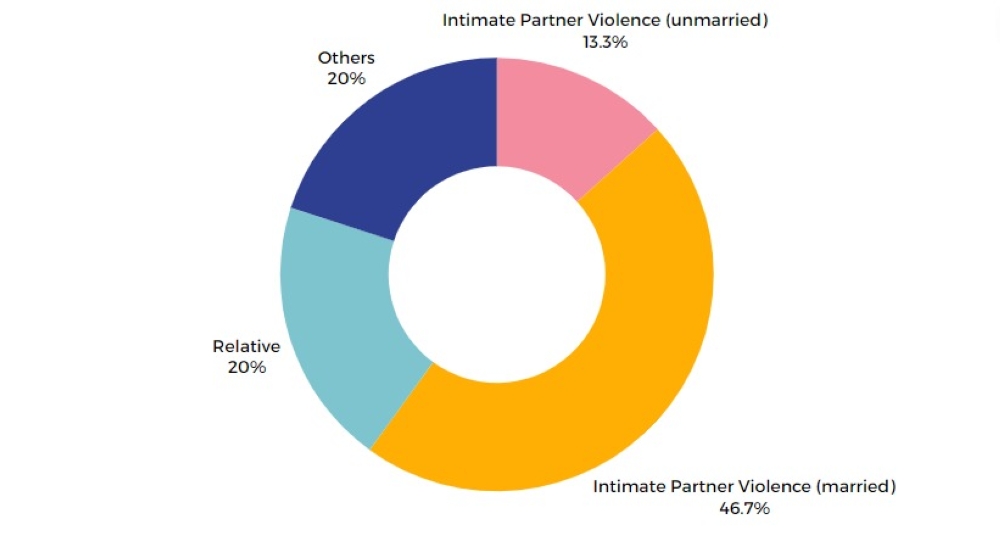SEPTEMBER 5 — There is an urgent need to address femicide, the gender-based murder of women and girls, in Malaysia. Alarmingly, in recent weeks, there have been two high-profile cases of femicide reported in the media. On August 17, 2024, 10-year-old Nuraina Humaira Rosli was found dead in a swamp near Kampung Orang Asli Bersah, Pos Kuala Mu. A month earlier, on July 17, 2024, 25-year-old Nur Farah Kartini Abdullah’s remains were discovered in an oil palm plantation in Kampung Sri Kledang, Hulu Selangor. Both cases have since been investigated as murder under Section 302 of the Penal Code. The current media reporting on both cases, however, misses a critical perspective — that these are cases of femicide.

What is femicide?
Femicide refers to the intentional killing of women and girls on the basis of gender which, according to UN Women, can be motivated by “stereotyped gender roles, discrimination towards women and girls, unequal power relations between women and men, or harmful social norms.” It is the most extreme form of gender-based violence. Femicide can be committed by a wide range of perpetrators including family members, intimate partners, acquaintances, strangers as well as in the context of organised crime. It is, however, most commonly perpetrated by intimate partners or people who are close to the victims. In both Farah and Nuraina’s cases, the perpetrators are individuals known to the victims.
Femicide in Malaysia
According to Women’s Aid Organisation (WAO) media monitoring from January to August 2024, 17 cases of femicide were reported in Malaysian newspapers. This is an average of two femicide cases reported in the media per month. Alarmingly, 60.0 per cent of these cases involved intimate partners (a combination of both married and unmarried intimate partners, at 46.7 per cent and 13.3 per cent respectively). The remaining 40.0 per cent were perpetrated by other trusted individuals, with 20.0 per cent being relatives and 20.0 per cent being others, such as colleagues, respectively. This emphasises the prevalence of this deadly crime within domestic spheres.

Effectively addressing femicide in Malaysia
Despite the severity and prevalence of femicide, Malaysia’s legal system does not specifically recognise it as a distinct crime. Currently, the murder of women is often prosecuted under general provisions of the Penal Code, such as sections 302 and 307. These laws, however, fail to acknowledge the gendered motives and patterns of abuse that often precede these murders. This lack of specific legal recognition not only denies justice to victims but also obscures the societal and systemic issues that contribute to these crimes. In WAO’s 2021 survey on violence against women (VAW), it was found that over half of Malaysians surveyed displayed attitudes which normalised VAW, and understanding these social sentiments is crucial in the journey of strengthening our collective response to femicide.
Calling the murder of women femicide is crucial because it acknowledges the unique and pervasive violence that women face simply because they are women. To combat femicide effectively, the Malaysian government must take decisive action. One way to do this could be amending the Penal Code to explicitly define and criminalise femicide. Such a legal recognition would allow the justice system to address the specific dynamics of gender-based violence that led to these tragic outcomes. Recognition of femicide is found in penal codes across various Latin and South American countries, including Chile, Argentina, and Mexico, amongst others.
Secondly, there needs to be gender-sensitive training for law enforcement officials to ensure they can recognise and respond to the gendered aspects of violence. Too often, cases of femicide are handled without the urgency and sensitivity they require, leading to further trauma for the victims’ families and communities.
Moreover, we need detailed and systematic data collection on femicide to understand its true scope in Malaysia. Without accurate data, our efforts to craft effective policies and intervention strategies will be hamstrung. Comprehensive statistics will shed light on the prevalence, risk factors, and patterns of femicide, guiding targeted prevention efforts.
Lastly, preventing femicide requires robust support services for women at risk of gender-based violence. This includes access to safe shelters, legal protections, and psychological counselling. With over 6,500 reported cases of domestic violence in 2022 alone, the need for well-resourced and accessible support systems has never been more apparent.
These recent tragic cases highlight a disturbing trend in an uptick of femicide cases, signalling the urgent need for Malaysia to address femicide through comprehensive legal and systemic reforms. Recognising and naming these murders for what they are is a vital step towards protecting women and ensuring that justice is served. The time to act is now, to safeguard the lives and well-being of all women in Malaysia.
* About the Women’s Aid Organisation
Since 1982, Women’s Aid Organisation has provided free shelter, counselling, and crisis support to women and children who experience abuse. Learning from women’s experiences, we advocate to improve public policies and shift public mindsets. Together, we change lives. Learn more on our website www.wao.org.my or follow us on social media @womensaidorg.
** This is the personal opinion of the writer or publication and does not necessarily represent the views of Malay Mail.





















